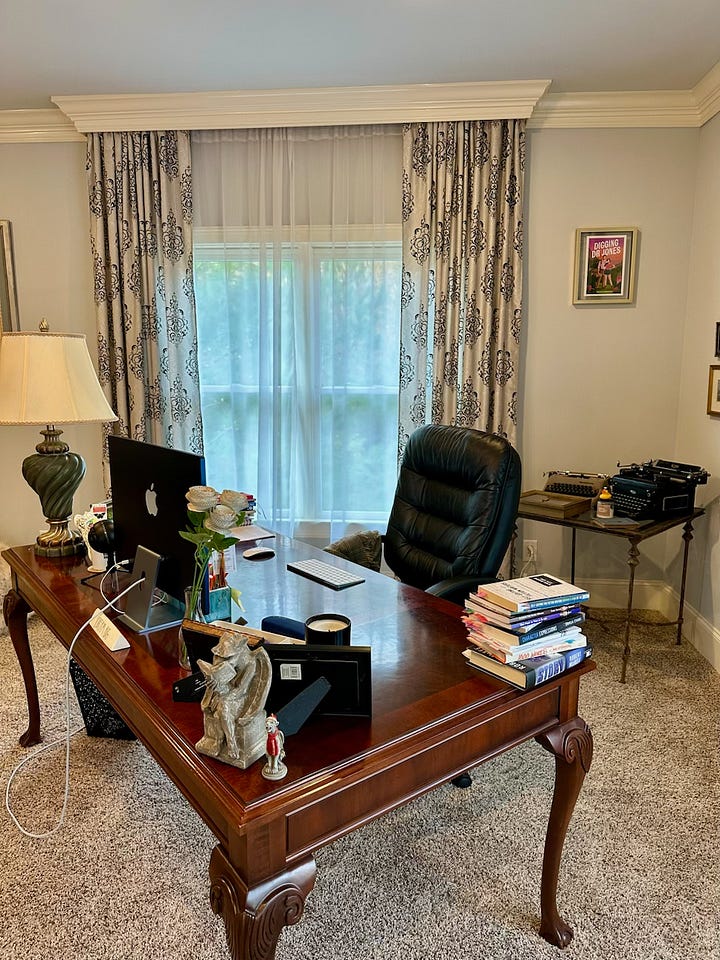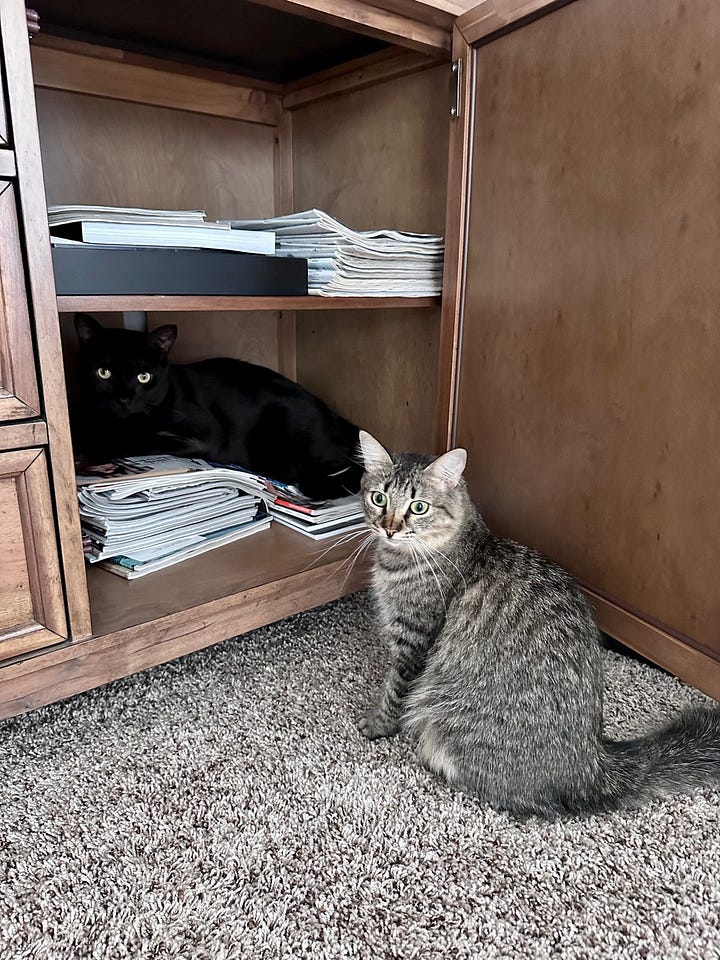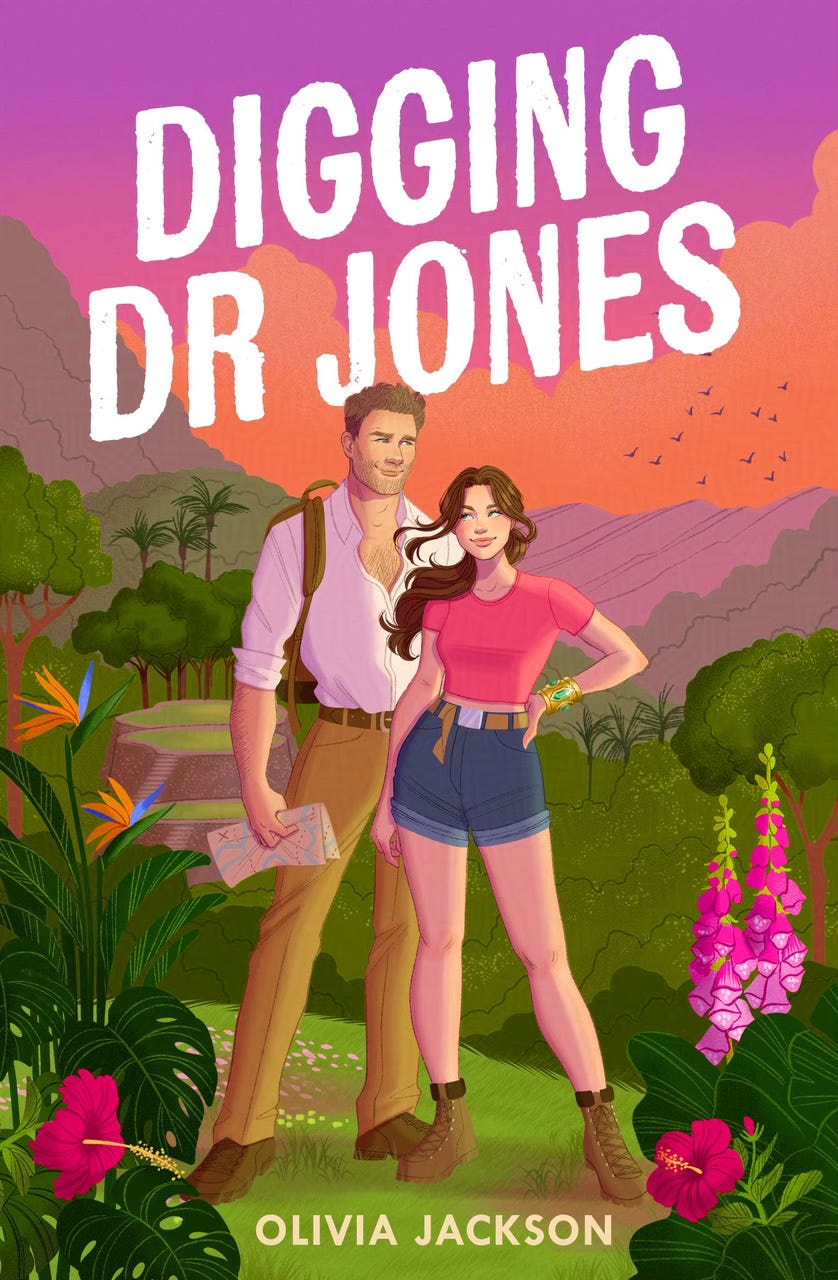Olivia was one of the first people I met on bookstagram. I was even lucky enough to read an early version of the story that has become her debut novel.
Her novel, Digging Dr. Jones, comes out May 2nd in ebook and audio and May 8th in paperback in the UK. It’s an Indian Jones like story full of adventure and spicy romance! I can’t wait for my own copy to arrive. Getting to know writer friends through bookstagram has been a blessing for so many reasons. Holding their books in my hands after months (and sometimes years) of watching them go through this process is THRILLING!
As if writing isn’t hard enough, English is Olivia’s second language! She is remarkable and I can’t wait to introduce you to her!
Tell us a bit about yourself.
I’m a software engineer turned into a romance writer. I wanted to be a writer since I was ... eleven or maybe even younger. It happened in geography class (my favorite subject) when I learned about a fascinating tree in Africa, the Baobab. I remember getting home that day and composing a comic-style adventure book about friends lost in Africa. Fast forward many years later (I’m in my forties now), and finally, I wrote an adventure rom-com.
Do you have any writing rituals? Do you write from the same physical location, start your time with a walk, light a candle, listen to certain music?
I write where I can: my office, my kitchen island, my car (very often while I’m waiting on my kids), doctor’s waiting rooms (and we all know how much ‘free’ time we can get there), etc.
I don’t have any rituals. If I write in my office, I like to burn a candle (my current favorite scents are Pomegranate and Damask Rose from Pottery Barn (both sadly discounted) or manifesting candles my critique partners (@christinekellywrites and
On this note, are you a panster, plotter, or planster?
Oh, I’m for sure a planster. I start with an outline (some parts are detailed, some are not), but the initial outline changes as I write because my characters decide to take over the story and do something silly or a stranger character walks into a scene, creates chaos, and turns themself into a secondary character.
When ideas come (usually a fix for a plot hole) in the shower, I use a pencil and waterproof notepad my husband gifted me for this very reason.
When I envision what it must look like when a writer starts writing all I can think is that you sit down at the computer, a blank document open, and the story just pours out of you.
Is this how it happens? How do you actually start writing? Do you always work on the computer or write with pen and paper? Tell me everything.
English is my second language, and I’m also dyslexic, so writing is a slow process for me (especially when editing). When I write the initial draft, I basically tell a story to myself in scenes (not chapters). If you wonder why I draft in scenes, it is to avoid getting stuck for hours on how to start or end a chapter on an intriguing moment or hooky sentence. I draft without rereading what I wrote the day before to evade a black hole of revisions and never moving forward with my plot. In the end, my draft is full of [TK notes], grammatical errors, and scenes that make no sense and will be killed in the next round of revision. Some days are easier than others. I can write nearly three thousand words, or I can write just a page. I only work on a computer because my penmanship is so horrendous I would have to hire a forensic document examiner to decode what I composed.


When do ideas come to you and where do you keep them until you are ready to use them? Do you have a dedicated notebook? Do you utilize the notes app in your phone?
Ideas strike at any moment, so I write them anywhere I can. Most of the time I use the Notes app. If I’m driving with my teenagers, I would ask them to text me the idea. At night, I scribble thoughts in the notebook I keep on my nightstand (in the morning, I use forensic document examiner skills to figure out what the heck I wrote :) ). When ideas come (usually a fix for a plot hole) in the shower, I use a pencil and waterproof notepad my husband gifted me for this very reason.
What resources do you turn to for inspiration and to learn about the craft of writing?
To help me with the craft, I turn to my trusted critique partners, and books like “Save the Cat Writes a Novel” by Jessica Brody, “Self-Editing for Fiction Writers” by Renni Browne, “How to Write Fiction: Busy Writer’s Guides” books by Marcy Kennedy, and of course my favorite “Character Expressions” by Dahlia Evans. I would also recommend great podcasts/blogs/ webinars:
Savannah Gilbo, Cecilia Lyra, The Shit No One Tells You About Writing (because they have so much expert advice on the first pages).
As for inspiration...oof, that comes from everywhere. :)
Last, but certainly not least, what are you reading right now?
At the moment, I’m reading “Code Word Romance” by Carlie Walker and listening to “The Creative Act” by Rick Rubin.
Where can people find you. Instagram, Substack, website. Share it all so we can follow everything that you do!
Substack:
Instagram: @oliviajacksonbooks
Website: http://www.oliviajacksonbooks.com
Be sure to check out past editions of Writers on Writing.







I am so honored to be featured on your Substack! ❤️❤️❤️